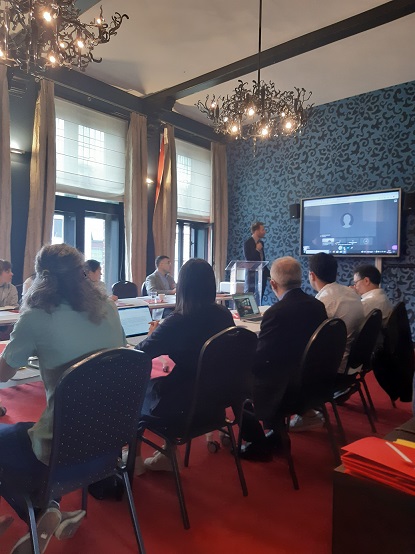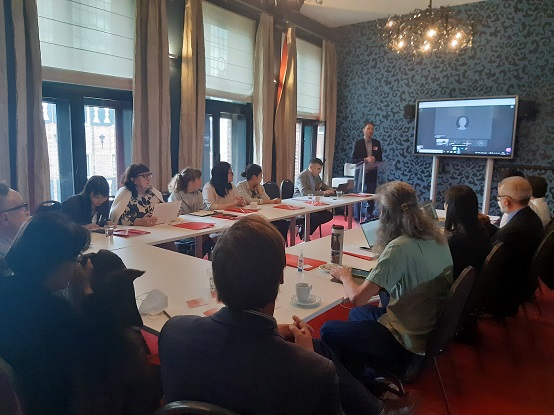Symposium: The European Union in Central Asia: An Uninvited Guest in China's and Russia's Backyard? (GSG with CEASG)
Due to its strategic location and rich natural resources, the region of Central Asia has for long been a focal point in the foreign policy strategies of neighbouring powers such as China, Iran, and the Russian Federation. However, it has remained largely absent in the foreign policy considerations of another emerging, close-by, international actor, namely the European Union. It was not before 2007 that Brussels adopted its first EU strategy for Central Asia, which has been replaced with an updated version as recently as 2019. The EU’s lackluster approach to Central Asia is the more surprising as the EU has repeatedly demonstrated to be an engaged foreign policy actor, particularly in its near (and further) abroad. Being conceptualized as “transformative-power Europe” (Börzel & Lebanidze 2017), studying the EU’s actorness gave rise to a rich body of scholarly literature. Focus has mostly been placed on the EU’s ability to promote rules and norms linked to, particularly, democratic governance, human rights and the rule of law (Wichmann 2007; Börzel 2009; Neuman 2019). Such thematic focus has been complemented by more theoretical work developing hypotheses under which the EU’s influence in shaping third countries is greatest (Lavenex & Schimmelfennig 2009).
The scholarship on the EU’s ability to exert transformative influence over the five Central Asian republics has not only been limited, but also sobering. It has been made abundantly clear that the EU lacks any normative power vis-à-vis the region (Ahrens & Hoen 2019), not least because it competes for attention (and influence) with the other regional powers, China and Russia foremost (Meister 2009; Sharshenova & Crawford 2017; Konopelko 2017; Bossuyt 2018; Keijzer & Bossuyt 2020). Taking this as its starting point, the proposed workshop attempts to critically approach EU-Central Asian relations, asking whether – when adopting a more sectoral governance approach – the EU’s transformative power vis-à-vis the region is greater than initially argued and if so, under what conditions it flourishes most. Building upon Bradford’s (2020) latest book “The Brussels Effect: How the European Union Rules the World,” the symposium encourages original, critical, interdisciplinary, and methodologically diverse papers on the European Union’s external governance towards the five Central Asian republics individually, or the entire region as such. More specifically, we encourage contributors to assess whether, through adopting a sectoral approach to the area of, for instance, development, infrastructure, water management, security, climate change, energy, trade, health, education, or any other element defining EU-Central Asian relations, the European Union is able to (co-)shape this geopolitically strategic region. If so, what drives the EU’s ability to do so; if not, what mitigates its (potential) influence? Does the EU’s involvement in specific policy areas in the region have knock-on effects in the shape of e.g. standardization, regulation, accountability, good governance, and others? How does the EU’s involvement in Central Asia influence China and/or Russia’s interests in the very region? Is the EU ready to compete with other regional powers, or does it rather opt for aligning with any of these? By answering these and other questions, this workshop will contribute to the scholarship on the EU’s external governance both empirically and theoretically.
Format: Physical (with online alternative if pandemic measures in place do not allow for physical format at the time)
Contact: Dr Marek Neuman (m.neuman@rug.nl) & Dr Agha Bayramov (a.bayramov@rug.nl)


